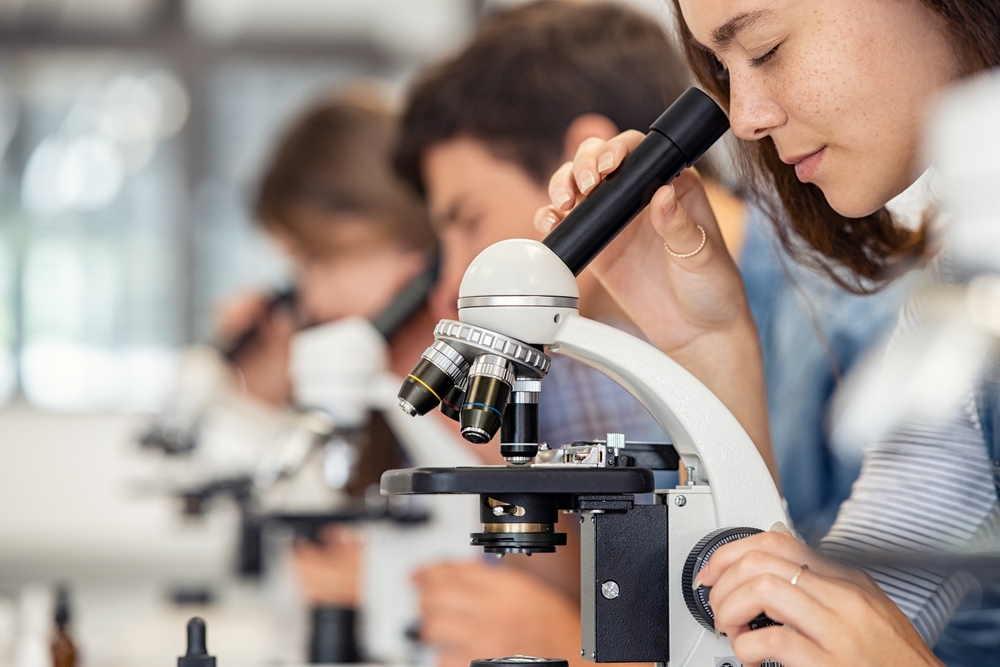
☝️ The most important facts in brief
- Pharmacy can be studied at some universities in Germany and abroad without a strict NC.
- Due to the high demand, places at German universities are limited by strict admission restrictions.
- There are ways to fulfil the admission requirements even without a very good Abitur.
- Vocational training and practical work experience can be taken into account when applying for a study place and help to avoid the high NC.
📖 Table of contents
Even if your A-levels are not particularly good, there are ways to get the Numerus Clausus (NC) and still study pharmacy. Alternative admission procedures, private universities or universities abroad can make the dream of studying pharmacy come true for some prospective students after all.
What average is required for admission to the pharmacy degree programme?
For the Pharmacy degree programme in Germany, a very good Abitur is considered a requirement. In fact, pharmacy is much more sought-after than most other degree programmes, meaning that not all applicants can be admitted to this popular course.
The annually stated NC for Pharmacy However, this is usually only the value that results from the first part of the authorisation procedure - the so-called High school graduation quota - results. According to this procedure, however, only 30 % of the places for degree programmes with restricted admission are allocated.
You will then have the chance to Additional suitability quota to get your place on the pharmacy degree programme. Other criteria count here, such as a completed vocational training programme or an aptitude test in which you scored well. 10 % of the study places are allocated in this way.
The last of the three admission quotas, through which the majority of degree programmes with admission restrictions are awarded, is the university selection quota (AdH). Here, too, you can score points with a whole range of additional qualifications, but the Abitur is taken into account in this third part of the admission process at all German universities.
Places on the pharmacy degree programme are raffled off at some study locations
When the semester begins and available places are filled, some universities offer a Lottery procedure. This is independent of the Foundation for University Admissions, which is actually responsible for degree programmes with admission restrictions, and the grade you received for your degree does not matter.
The only requirement is a university entrance qualification, which you have automatically acquired with the Abitur or the Fachhochschulreife. Even Studying without a high school diploma is now possible at any university in Germany under certain conditions.
In the lottery procedure, all applicants have the same chances. Neither the final grade nor any additional qualifications for the relevant degree programmes count here. However, the lottery procedure has one disadvantage: there are usually only very few places available, which is why the chances of being admitted to a degree programme are equally distributed, but very low overall.
The private university as a possible solution
There are several private universities in Germany that award places for their degree programmes independently of the Stiftung für Hochschulzulassung and its online portal hochschulstart.de and are therefore not bound by an NC. Such a university can be a solution for students who want to study pharmacy despite an insufficient grade point average.
However, the tuition fees at such a university are significantly higher compared to studying at a state-funded university, which can represent a considerable financial burden for students. On average, such a degree programme can be expected to cost around 20,000 euros per year - assuming you complete your degree within the standard period of study. However, students can often still finance their studies through scholarships, student loans or other means.
Alternative study programmes
There are some very interesting degree programmes that have a lot in common with pharmacy studies, but are not subject to any restrictions or at least have much more moderate entry requirements. These do not conclude with a state examination like pharmacy, but are Bachelor's degree programmes instead.
With a Bachelor of Science (B.Sc.), you have good opportunities in a wide variety of fields. For example, after completing your degree programme, you could work in drug development or in quality management at a pharmaceutical company.
B.Sc. programmes such as biotechnology or molecular biology offer lectures that are very similar to those in pharmacy studies. These courses can provide a solid basis for a later specialisation in pharmacy. Such programmes often have their own admission requirements and can sometimes be an attractive option with a smaller number of applicants. With a bachelor's degree in these subjects, you can then go on to a master's degree in pharmacy or related fields to deepen your specialised knowledge. For many people, such a degree programme is a good alternative to pharmacy after an unsuccessful application at hochschulstart.de.
A completed apprenticeship as a springboard
If you have a higher education entrance qualification from school but not the grades you need for degree programmes such as Pharmacy, there is usually no point in applying semester after semester in the same way. Waiting semesters are no longer recognised.
You should therefore not just wait, but can instead use the time wisely to do some training. If this takes place in an area that will benefit you when studying pharmacy, it can be recognised when you reapply at a later date. Perhaps you will start your studies directly after your training.

Interviews and test procedures at the universities
The universities can more or less choose their students themselves. For the third part of the admission quota, the university's individual selection criteria count a lot. Some universities even organise interviews or entrance tests in which applicants can prove that they are familiar with the basics of systematic and structured work and are suitable for studying pharmacy.
Find out about the deadlines for your chosen university and try to collect points there that could help you with admission later on.
Many students choose to go abroad
In view of the strict NC restrictions in German degree programmes, many students are turning abroad to realise their dream of studying pharmacy. Abroad, the admission hurdles are often structured differently, which offers new perspectives and opportunities.
We are very familiar with the admission requirements for medical degree programmes abroad and can help you to get your place to study pharmacy after all. We will take care of the application for you, help you prepare for admission exams and even help you find affordable accommodation in the city of your university.
Crossing borders paves the way for international education and diverse expertise, which is becoming increasingly valuable in a globalised world. You can find detailed information about the individual universities in our selection, their tuition fees and other important facts on this website.
What about the language?
Of course, you can and should learn the language of the country in which you live during your studies. However, studying directly in the local language would make everything unnecessarily complicated. That's why we put you in touch with universities that offer their degree programmes in English or even German. This way, you can follow the courses without any problems and have a better chance of completing your pharmacy degree programme within the standard period of study.
Studies completed abroad are recognised in Germany
Studying abroad is something that needs to be carefully considered. Many people who go abroad for a place on a sought-after degree programme return afterwards. Experience has shown that this is possible without any problems, as degrees from European countries in particular are recognised in Germany.
If you have trained as a pharmacist in another country, this is practically proof that you are at the level of a pharmacist trained here.





